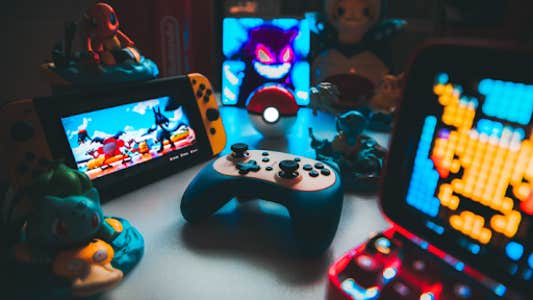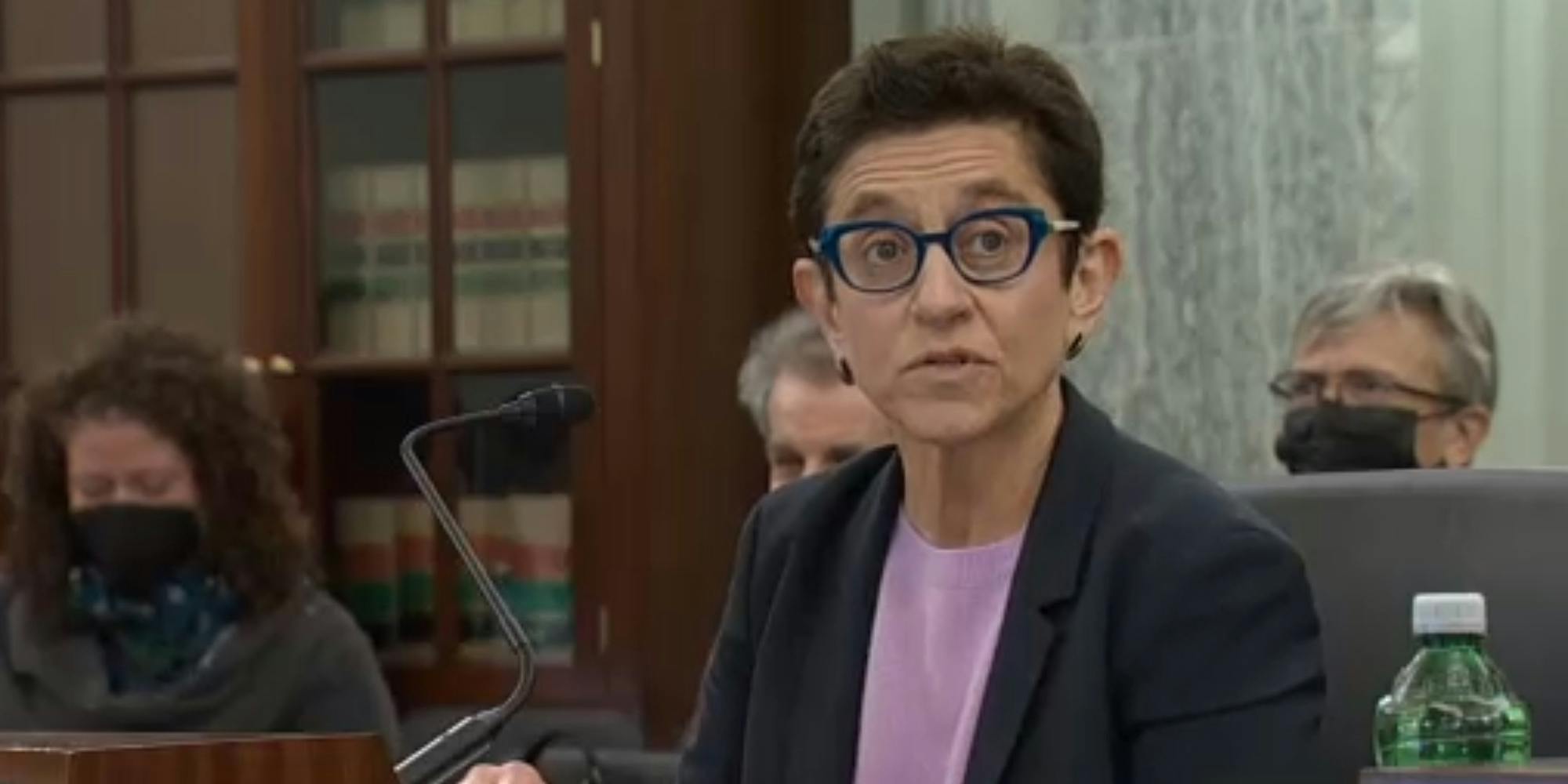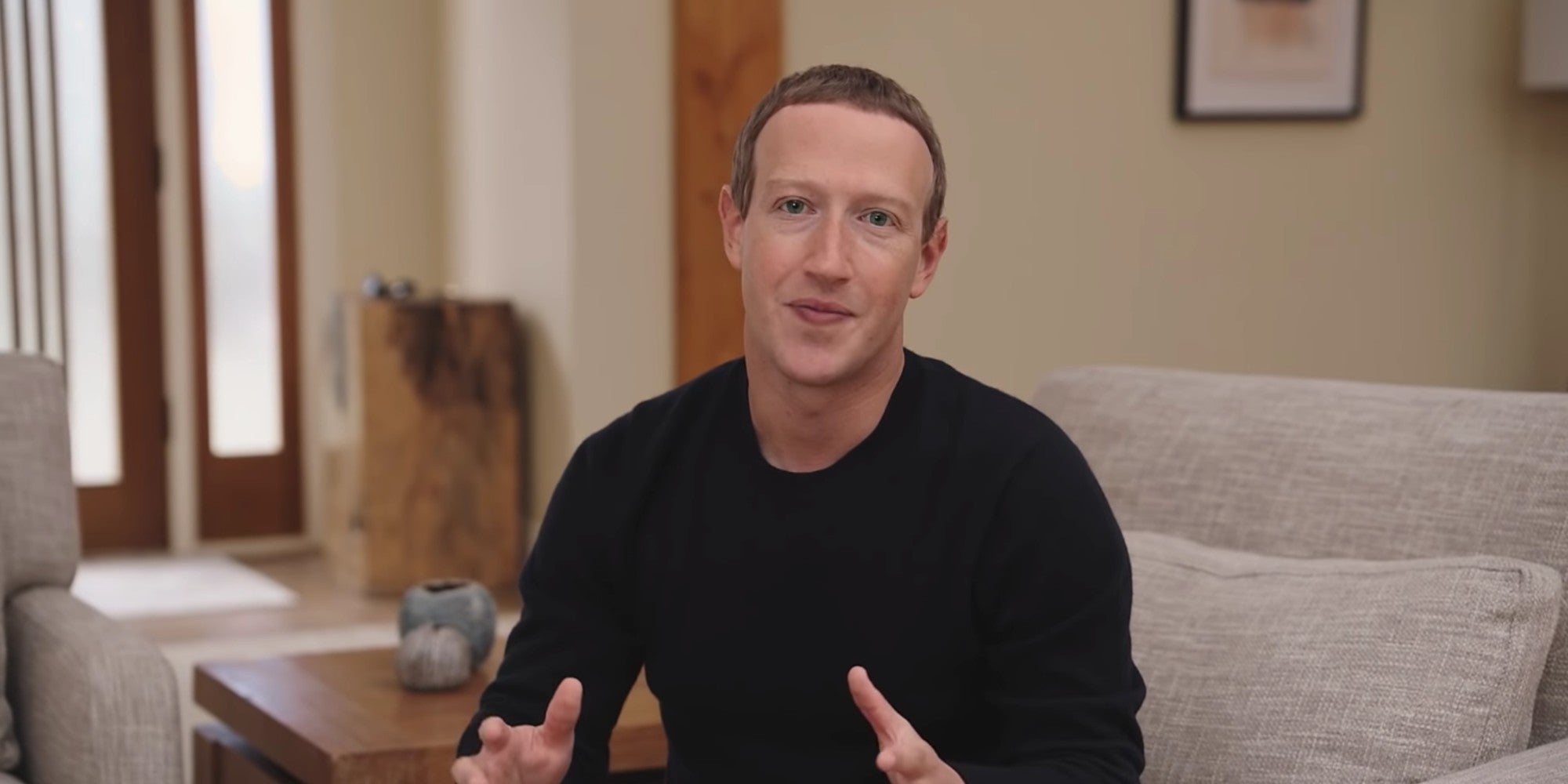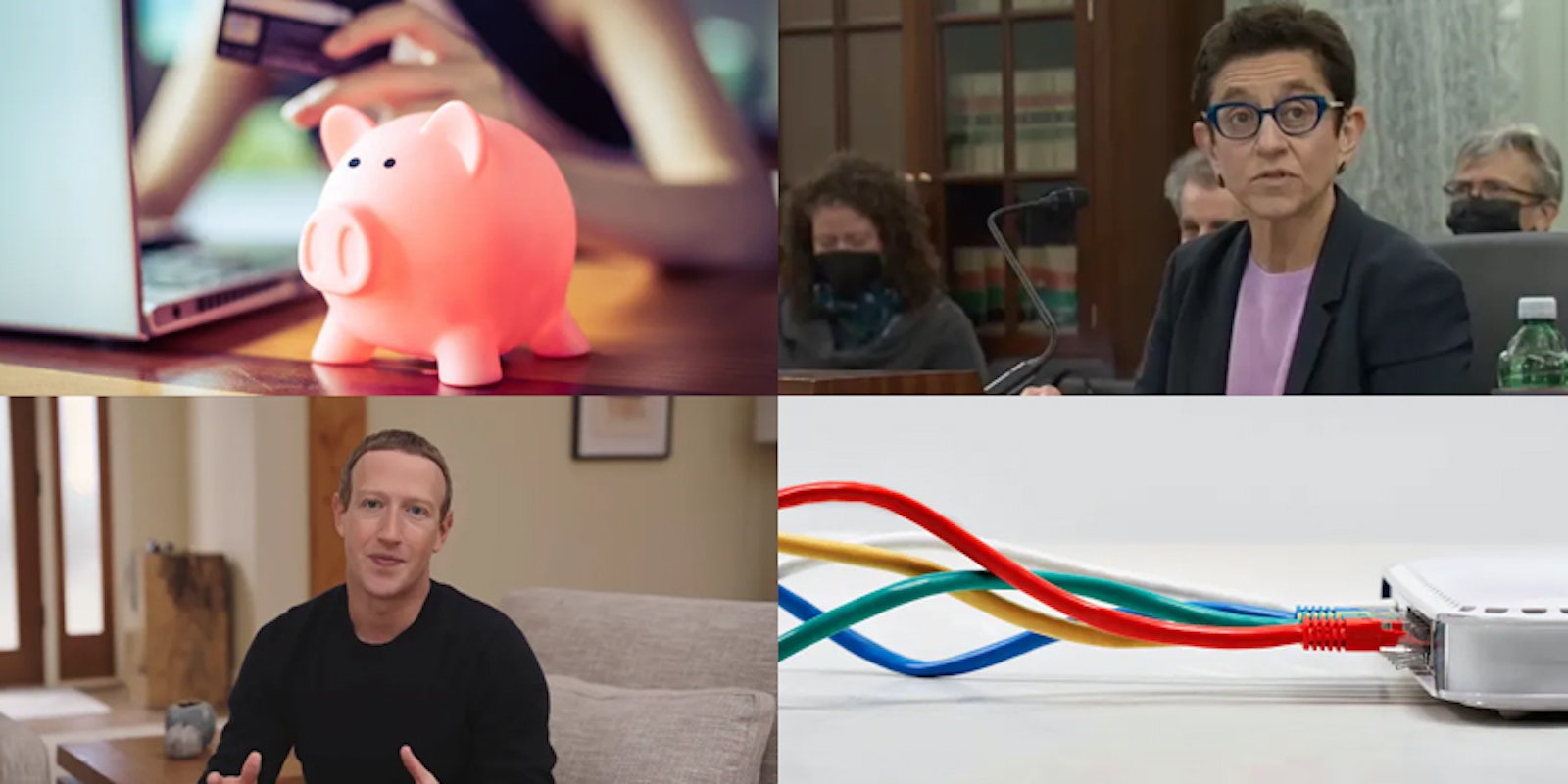Welcome to the Tuesday edition of Internet Insider, where we dissect tech and politics unfolding online.
TODAY:
- Consumers in the U.S. are paying more for broadband than almost anywhere else in the world
- FCC nominee Gigi Sohn says she fully supports reinstating net neutrality
- Facebook announces bust of COVID-19 disinfo campaign linked to China
Sign up to receive the Daily Dot’s Internet Insider newsletter for urgent news from the frontline of online.

BREAK THE INTERNET
Consumers in the U.S. are paying more for broadband than almost anywhere else in the world
Yet another report shows that the United States pays more for their broadband than most other countries.
A recent report from Compare the Market, a U.K.-based price comparison site, found that the U.S. ranks 9th in the world for most expensive broadband. The U.S. was comparable to Iceland, which placed just above the U.S., and Guatemala, which ranked just below the U.S.
Overall, Compare the Market ranked 110 countries. Ukraine had the cheapest broadband, with Russia having the second cheapest. Ethiopia had the most expensive broadband, followed by the United Arab Emirates.
The findings for the U.S. track with other recent studies that have found that Americans are clearly not enamored with the price or speeds of their internet. Recent polls and surveys paint a bleak picture of how Americans feel about their internet service.
In September, Pew Research Center published “The Internet and the Pandemic,” which found that just over a quarter of those polled—26%—said they were worried about being able to pay their internet bills over the next few months. Almost the same amount, 24%, said the same about their smartphone bills.
Meanwhile, over the summer, Consumer Reports released a survey that found that nearly half of Americans were “dissatisfied” to some degree about the price they were paying for their internet service. The survey found that 27% of people were “somewhat dissatisfied,” 10% were “very dissatisfied,” and 5% were “completely dissatisfied.”
Read the whole story here.
—Andrew Wyrich, deputy tech editor

SPONSORED
Investing in your passion could make you a lot of money
A powerful way to grow your money is by investing in something you love. And while everyone is talking about meme stocks, Alternative Assets is the only newsletter dedicated to guiding you through the world of alternative investment markets. They dig into everything from artwork to trading cards, wine & whiskey, sneakers, music, and more.
Subscribe to Alternative Assets for free and get data-driven analyses and recommendations that beat the markets.

TECH POLICY
FCC nominee Gigi Sohn says she fully supports reinstating net neutrality
Gigi Sohn, a public interest advocate who was nominated to be a Federal Communications Commission (FCC) commissioner by President Joe Biden, told senators last week that she supported restoring the agency’s oversight of broadband as net neutrality took center stage at her FCC confirmation hearing.
Sohn was one of several Biden nominees who spoke during a confirmation hearing before the Senate Commerce Committee on Wednesday. Sohn, who has drawn rave reviews by public interest groups and experts in the wake of her nomination, faced some pushback from Republicans before the hearing, and even some throughout the hearing. Sohn pledged to close the digital divide in the U.S. and reiterated her support for net neutrality.
Early on in the hearing, Sen. Roger Wicker (R-Miss.), the ranking member of the committee, who has blocked attempts in the past by Democrats to force a vote on net neutrality bills, said that he had concerns about Sohn’s previous statements about issues that might come up at the committee, noting her long-time advocacy of net neutrality.
Much like his questioning of Jessica Rosenworcel last month, Wicker said he preferred “light touch” regulation—referring to the FCC’s repeal of net neutrality rules.
Sohn responded, much like Rosenworcel did, that the repeal of the 2015 Open Internet Order impacted more than just ISPs’ ability to block or throttle traffic. The repeal abdicated the FCC’s authority over the industry by no longer classifying ISPs under Title II of the Communications Act, which Sohn said was needed again.
“I think Title II, actually the evidence shows, that Title II and net neutrality had no impact on investment,” Sohn said, adding: “I agree with you generally that light touch is better, but what I’m concerned about now—and with the repeal in 2017 of the net neutrality rules and the reclassification of broadband—is that we have no touch. The net neutrality debate, which I have been [in] now for 20 years, is really more about whether there is going to be oversight … It’s really much broader than the no blocking and throttling. It’s about whether broadband, which we all agree is an essential service, should have some government oversight, and right now it doesn’t have any.”
—A.W.
DAILY DOT PICKS
- Diamonds are forever, but these holiday deals are not. Don’t waste time searching the internet for the perfect holiday gift. Here are 20 of the best jewelry deals you can get right now!*
- ‘Tis the season of the ugly Christmas sweater. Get into the holiday spirit with some of the funniest, ugliest Christmas sweaters we could find!*
- Not sure what to watch during the holidays? Here are the best new binge-worthy originals coming to Hulu this month!*
- *The Daily Dot may receive a commission in connection with purchases of products or services featured here.

BIG TECH
Facebook announces bust of COVID-19 disinfo campaign linked to China
Facebook has announced the removal of hundreds of accounts linked to foreign disinformation campaigns regarding COVID-19.
In a blog post, the social media company revealed details on several adversarial networks stemming from China, Palestine, Poland, Belarus, Italy, France, and Vietnam.
Specific attention has been given to the campaign tied to China, which saw 524 accounts, 20 pages, four groups, and 86 Instagram accounts removed by the social media platform.
“This network originated primarily in China and targeted global English-speaking audiences in the United States and United Kingdom, and also Chinese-speaking audiences in Taiwan, Hong Kong, and Tibet,” the blog states. “We began looking into this activity after reviewing public reporting about the single fake account at the center of this operation.”
In July, an account claiming to belong to a Swiss biologist named Wilson Edwards drew attention for accusing the U.S. government of intimidating the World Health Organization (WHO) into investigating COVID-19’s origins in China.
Yet the Swiss Embassy in China revealed in August that it had no record of any such person existing, leading Facebook to immediately take down the account.
The fake account’s criticism of the U.S. on Facebook was quickly interacted with by “a number of Chinese government officials.” Facebook says nearly all the accounts to engage with the post shortly after were fake.
—Mikael Thalen, staff writer

